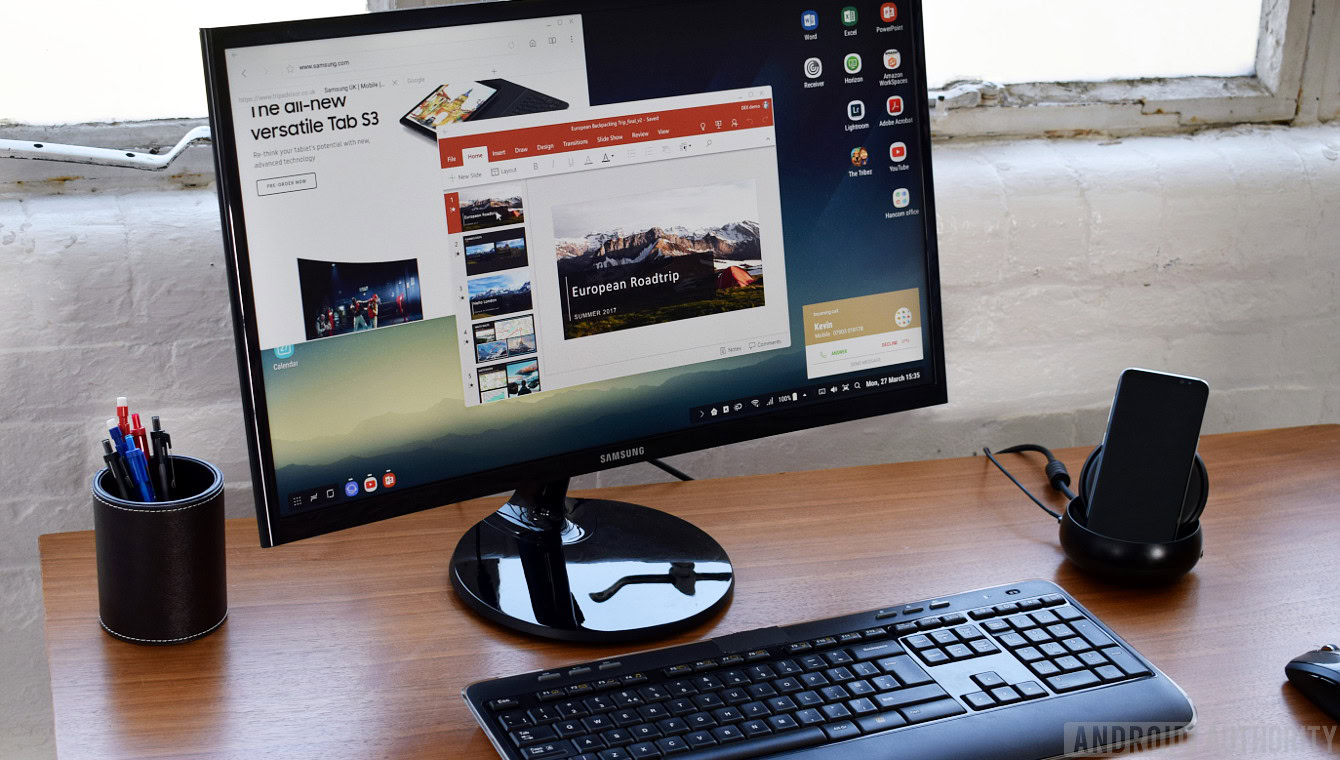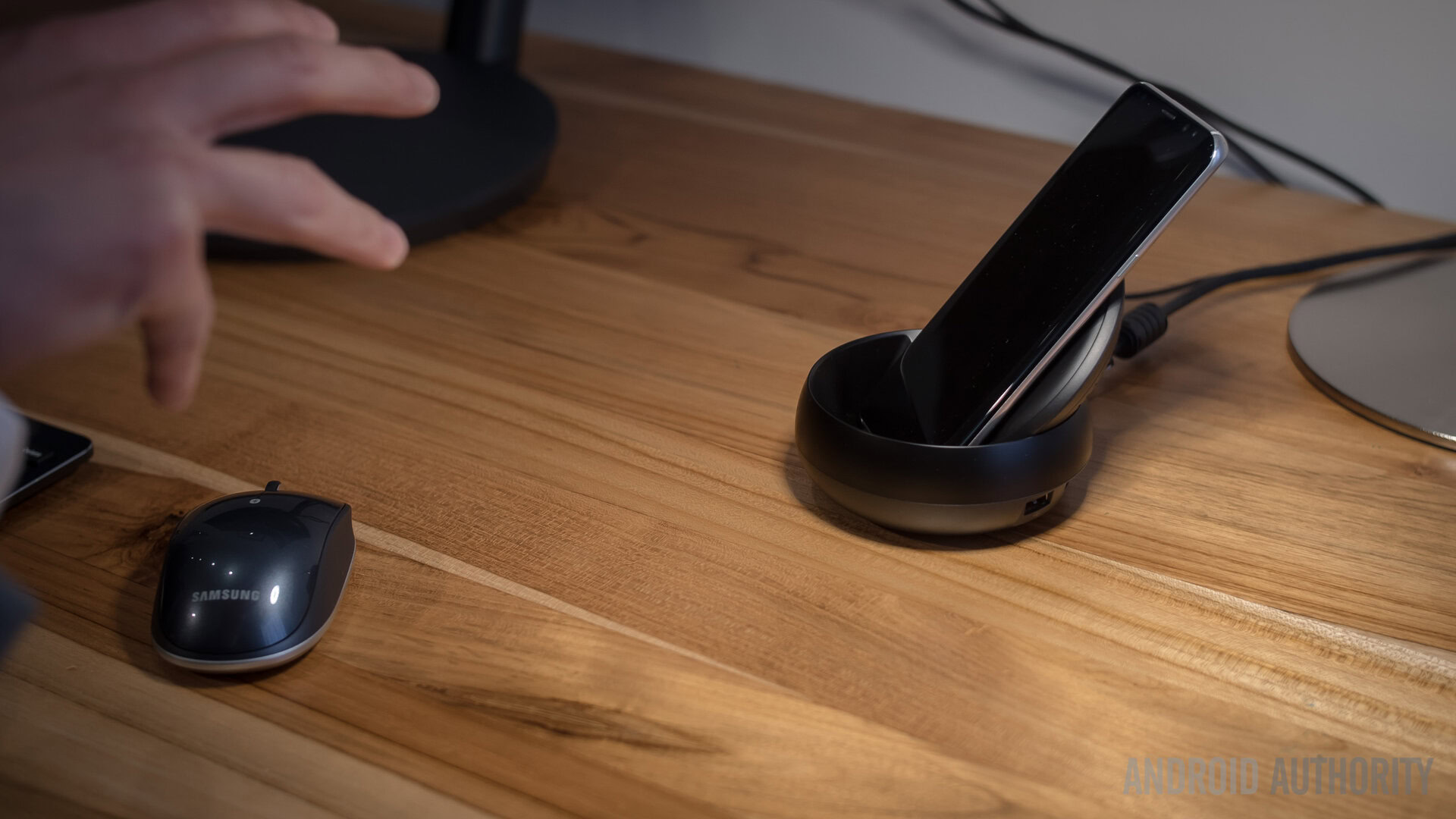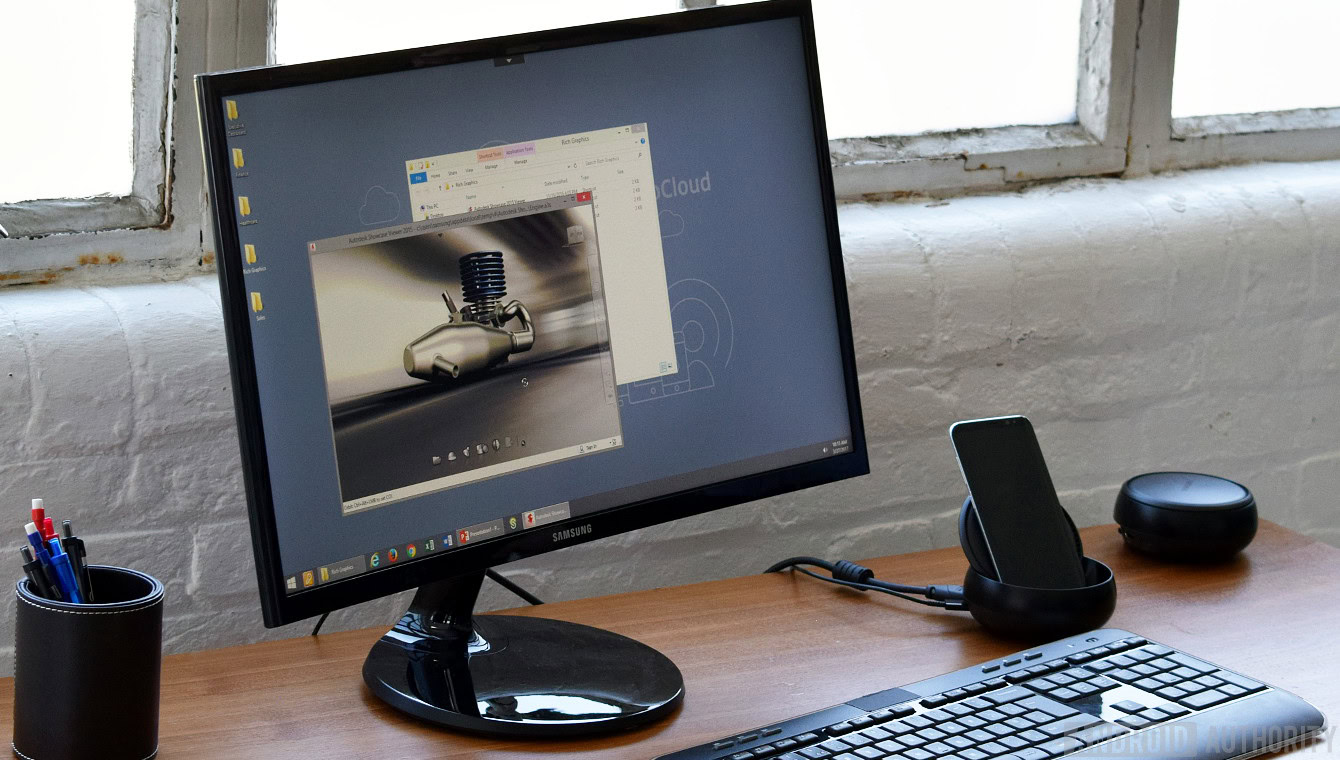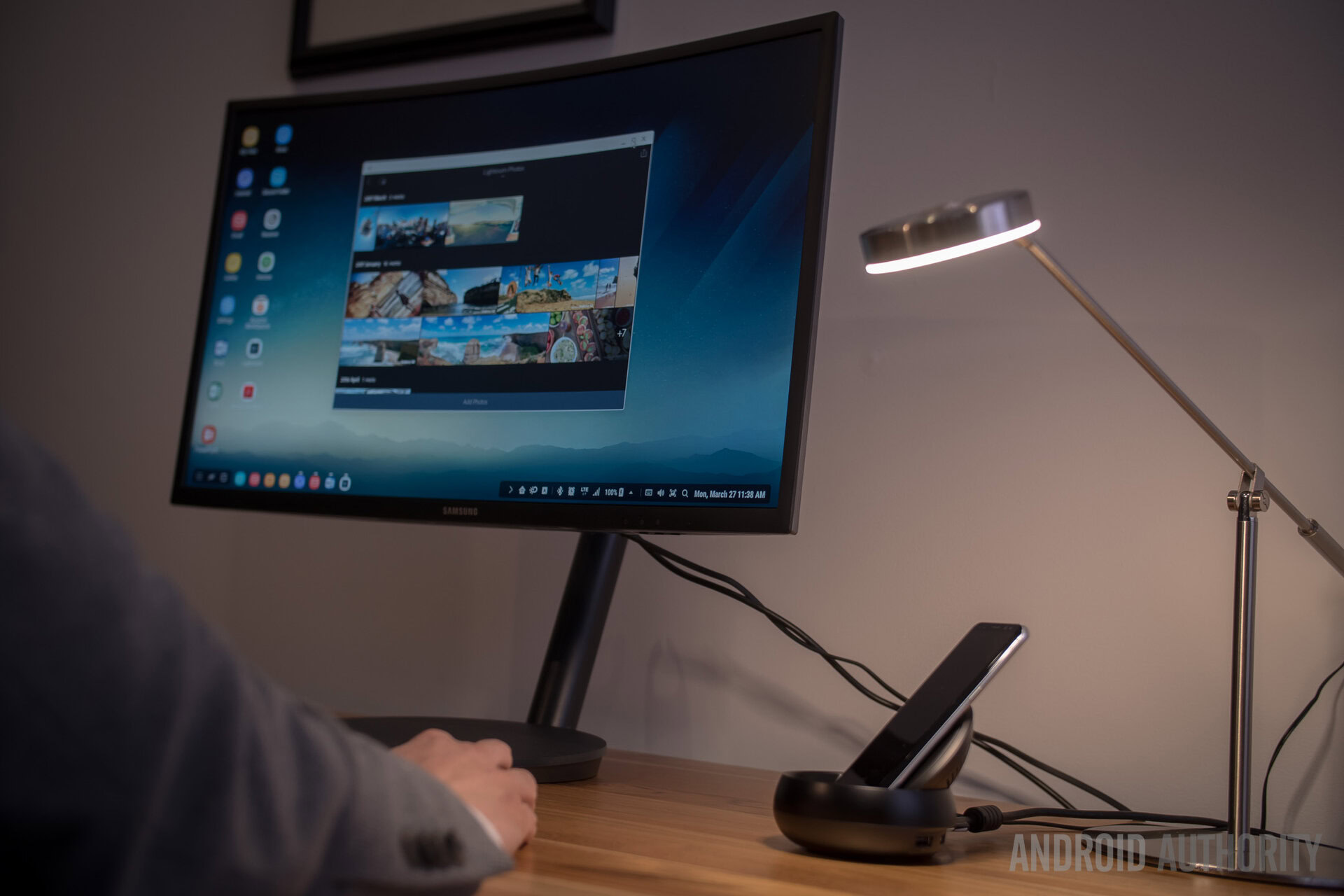Affiliate links on Android Authority may earn us a commission. Learn more.
What you need to know about Samsung DeX (Video) [Update: price and release time frame]
Published onMarch 30, 2017
Update: Samsung has confirmed on its own site that the DeX dock will be priced at $149.99 and will be available sometime in late April.
Original story: You may or may not view Samsung’s new Galaxy S8 flagship as a revolutionary smartphone, but the company’s DeX feature, DeX being short for desktop experience, has some very interesting implications for mobile, personal, and enterprise computing. The feature sees the Galaxy S8 switch into running familiar desktop version of Android, which Samsung simply calls its DeX UI. This can then be used with a traditional keyboard and mouse setup, if you’re in the mood to do something productive.
The DeX Station doesn’t contain any additional processing hardware or even really augment the handset’s standard features in any major way. Everything runs on the Galaxy S8’s internal hardware, the dock is there to provide power and allow the handset to connect up to a display, keyboard, mouse, and other peripherals.

Your regular apps, contacts, emails, camera photos, and messages all transition over to the desktop space with familiar interfaces, albeit at slightly different scales to what you’re used to seeing on mobile. However, some apps – such as Microsoft’s office suite, Adobe Acrobat Reader and Lightroom mobile – have been especially optimized for the desktop space, making use of more familiar desktop menus and keyboard shortcuts. Multi-tasking is fully supported, you can have a video playing in one window while you type up a document in another.
Notifications continue to come through into the status bar in the lower right and the app draw can be found by clicking the icon in the bottom left. Phone functionality continues to operate in the background, and users can even take calls hands-free over at their PC, and then pick up their phone and continue the call uninterrupted.

Docking Station Specs
The base station itself is a small and relatively simple affair. The Galaxy S8 docks into a USB Type-C connector, which provides fast charging power so the phone won’t run out of juice, and also handles the display and other connections. The dock provides two extra USB Type-A 2.0 ports for connecting up other devices, an ethernet connection, and an HDMI output that can power displays with up to a 4K resolution with a 30 fps frame rate.
Given that desktop workloads are often more intensive than your typical smartphone use case, Samsung has included a cooling system into the dock which should keep it operating at peak performance. It’s a fan powered solution that seems to simply help move heat away from the case, but we didn’t notice any audible distractions during Samsung’s presentation.
Speaking of performance, we’ll have to spend some more time with DeX to draw any definitive conclusions but it did appear a tad slow at opening up a 3D CAD application running on a virtual Windows desktop. Booting also takes a few seconds, so switching to and from phone mode isn’t entirely seamless. That being said, the system seemed to handle opening up and editing in typical office applications and browsing the web without any issues.

DeX designed for enterprise
As I mentioned, DeX is very much designed with enterprise users in mind and as such supports virtual desktop environments. This allows for users to run an emulated Windows operating system on the phone via VDI in order to access a much wider variety of business applications supported outside of Android, should the need arise.
Samsung notes that it has worked closely with Citrix, VMware and Amazon for its virtual desktop environment, in order to supporting log-ins to Virtual Desktop Infrastructure (VDI). The idea is that business users will be able to simply plug their phone into a DeX Station at any office, log into their VDI and access all of their work applications and documents just by carrying their smartphone around.

Samsung’s Dex is an intriguing feature both for personal and business users, and one that we certainly want to spend more time with. It remains to be seen if this feature will give Samsung’s Galaxy S8 range an edge in the enterprise markets, but the inclusion of a virtual desktop environment is sure to grab some attention.
Pricing and regional availability for the DeX dock have not been announced yet.